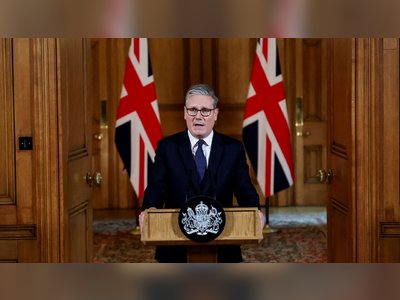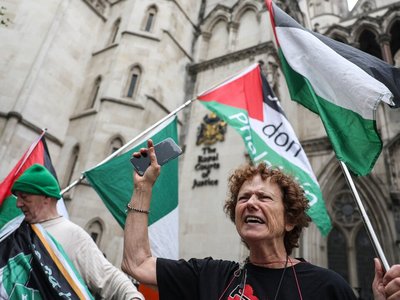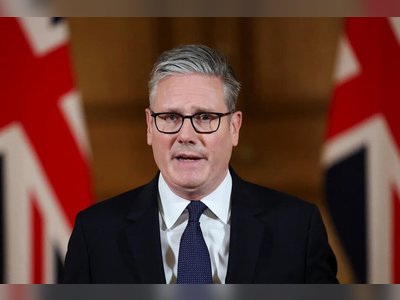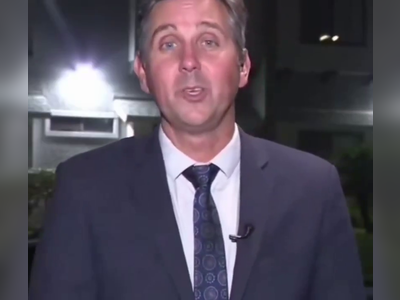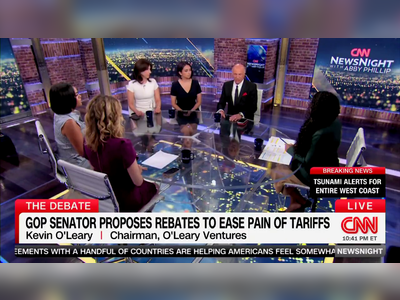Merging Giants: Vodafone and Three's Fifteen Billion Pound Telecom Gamble
A Strategic Move to Lead in 5G, Amid Concerns Over Competition and Consumer Impact
The recent approval of the fifteen billion pound merger between Vodafone and Three is poised to reshape the United Kingdom's telecommunications landscape.
This strategic consolidation will reduce the number of major mobile operators from four to three, a change that has ignited heated debates regarding its implications for competition, infrastructure investment, and consumer welfare.
Vodafone touts the merger as a catalyst that will catapult the UK to the forefront of Europe's telecommunications industry, promising a superior fifth-generation network.
With an eleven billion pound investment on the horizon, the company assures significant improvements in reliability and coverage.
However, detractors warn of potential downsides, notably the risk of reduced competition leading to higher prices and diminished consumer choice.
The transition promises substantial infrastructure enhancements, echoing the optimism of Vodafone's Chief Executive Officer, who argues that consumers will benefit from faster and more reliable connectivity.
Yet, as industry analyst Paolo Pescatore notes, integrating two sprawling networks is fraught with challenges.
Historical precedents, such as the prolonged integration of British Telecommunications and EE, underscore the complexities involved.
Additionally, smaller operators and virtual network providers may find themselves struggling to compete against this formidable new entity, potentially stifling innovation in a market already concentrated.
Proponents of the merger argue that stringent regulatory conditions can mitigate the risks of monopolistic behavior.
By ensuring transparent and fair market access for smaller players, they hope the consolidation could foster advancements otherwise unattainable.
The effectiveness of such safeguards, however, remains to be seen and will test the resilience of regulatory frameworks.
The successful navigation of this merger will hinge on the transparency and commitment Vodafone and Three exhibit in adhering to their promises.
Consumers, too, play a pivotal role.
Engaged and informed public discourse can influence the strategic direction of this new telecom giant, preventing potential overreach.
As the dust settles, the outcome of this merger—whether a leap towards technological progress or a cautionary tale of concentrated power—will rest on execution, accountability, and vigilance.
To echo the sentiment of George Bernard Shaw, progress necessitates change, but success lies in the wise management of that change.
The true impact of this merger will unfold only with time.
This strategic consolidation will reduce the number of major mobile operators from four to three, a change that has ignited heated debates regarding its implications for competition, infrastructure investment, and consumer welfare.
Vodafone touts the merger as a catalyst that will catapult the UK to the forefront of Europe's telecommunications industry, promising a superior fifth-generation network.
With an eleven billion pound investment on the horizon, the company assures significant improvements in reliability and coverage.
However, detractors warn of potential downsides, notably the risk of reduced competition leading to higher prices and diminished consumer choice.
The transition promises substantial infrastructure enhancements, echoing the optimism of Vodafone's Chief Executive Officer, who argues that consumers will benefit from faster and more reliable connectivity.
Yet, as industry analyst Paolo Pescatore notes, integrating two sprawling networks is fraught with challenges.
Historical precedents, such as the prolonged integration of British Telecommunications and EE, underscore the complexities involved.
Additionally, smaller operators and virtual network providers may find themselves struggling to compete against this formidable new entity, potentially stifling innovation in a market already concentrated.
Proponents of the merger argue that stringent regulatory conditions can mitigate the risks of monopolistic behavior.
By ensuring transparent and fair market access for smaller players, they hope the consolidation could foster advancements otherwise unattainable.
The effectiveness of such safeguards, however, remains to be seen and will test the resilience of regulatory frameworks.
The successful navigation of this merger will hinge on the transparency and commitment Vodafone and Three exhibit in adhering to their promises.
Consumers, too, play a pivotal role.
Engaged and informed public discourse can influence the strategic direction of this new telecom giant, preventing potential overreach.
As the dust settles, the outcome of this merger—whether a leap towards technological progress or a cautionary tale of concentrated power—will rest on execution, accountability, and vigilance.
To echo the sentiment of George Bernard Shaw, progress necessitates change, but success lies in the wise management of that change.
The true impact of this merger will unfold only with time.

